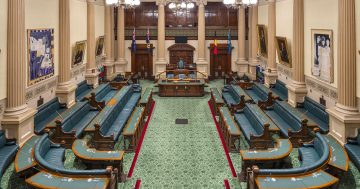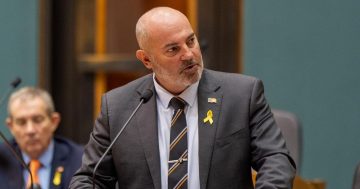Kevin Voigt* says that if making a family budget leads to angry words and bad tempers, try making a game of achieving your financial goals.

Photo: Suzy Hazelwood
My wife and I once tried wearing cat and dog masks to talk about money.
Our previous attempt to make a budget ended in shouts and pointed fingers, and I thought this might help tame our hair-trigger emotions.
Instead, it sparked another disagreement over spending.
“I was thinking something more Cirque du Soleil,” she said through the rubber cat mask I bought her.
“I feel like we’re about to rob a bank.”
Our Halloween tactic didn’t work, but other strategies did.
Five years ago, our credit card debt was $20,000.
This month, our family of three celebrated that debt dropping to $0.
In a way, most financial advice can be boiled down to this: Spend less, save more.
But where’s the fun in that?
One trick financial advisors recommend is to make a game of achieving your short-term and midterm financial goals.
Here are ways to put some fun into financial planning.
Track your spending
One couple in their early thirties recently came to financial planner Kevin Michels for help.
By appearances, they were doing great: two young children and two successful careers that together earn over $200,000 a year.
But that success masked the fact that child care, a mortgage, a bank loan for home improvements, two car loans and credit card bills were draining $78,000 a year in debt payments.
Changing course started with one simple task: For one month, at the end of each day, they tallied how much was spent and where it went.
“Don’t make any changes in your spending — just understand where it’s going,” Michels told them.
That awareness did wonders for their behaviour: The couple cut $2,800 in spending the next month.
“They’re starting to get excited about what they could do if that $78,000 debt went away,” says Michels.
“That’s what keeps motivation high.”
Another tip: Making a financial plan with the help of a professional is a much better strategy than wearing a rubber mask to dial down negative emotions that often get in the way of effective budgeting.
Set a 30-day savings challenge
Certified financial planner R. J. Weiss and his wife, Natalie, use 30-day challenges to reach savings goals.
For example, to help fund a short vacation, the couple tried to sell at least one item a day on Craigslist, eBay or at secondhand stores.
They earned over $500 selling old phones, iPods, furniture, unused gifts from their wedding, CDs, books and other items.
“The big money was in the first 15 days,” says Weiss, whose final item sold was firewood left at their house by the previous owner.
“It got pretty hard the last couple weeks to think of things to sell.”
“But it brought my wife and I together, and it made us look at why we bought some of these things in the first place.”
That 30-day challenge led to some bigger 12-month challenges, such as contributing 1 per cent more each month to their superannuation savings.
“Last year, my goal was to increase my mortgage payment by $100 every month to pay it off quicker,” Weiss says.
Declare ‘no spend’ weeks
When unexpected bills strike, my wife and I will declare “petrol and grocery” weeks: After basic bills are covered, we challenge ourselves to spend only to fill the petrol tank or the refrigerator until the next paycheque hits.
Such a “no spend” week is a good strategy to take baby steps toward bigger financial targets.
“It’s a shorter time period with an easier end goal,” says Kristin Larsen, who writes the Believe in a Budget blog.
“Skip the morning coffee or drive-thru on the way to work.”
“Bring lunch from home.”
“Say no to happy hour after work,” she says.
Defend your savings
The single best financial move my wife and I made was having 20 per cent of each paycheque sent straight into our savings account.
Then, the challenge became: Can our family make it to the next paycheque without tapping that cash?
It can feel like a game of “overdraft roulette” as we monitor our account to get as close to $0 as possible before drawing on savings.
Often, we don’t make it.
But our savings account is far fatter than before.
An unexpected benefit of this strategy: Our talks about money have become more frequent and less fraught.
And we no longer feel the need to wear masks to talk about a budget.
* Kevin Voigt is a personal finance writer at NerdWallet.
This article first appeared at www.nerdwallet.com.











